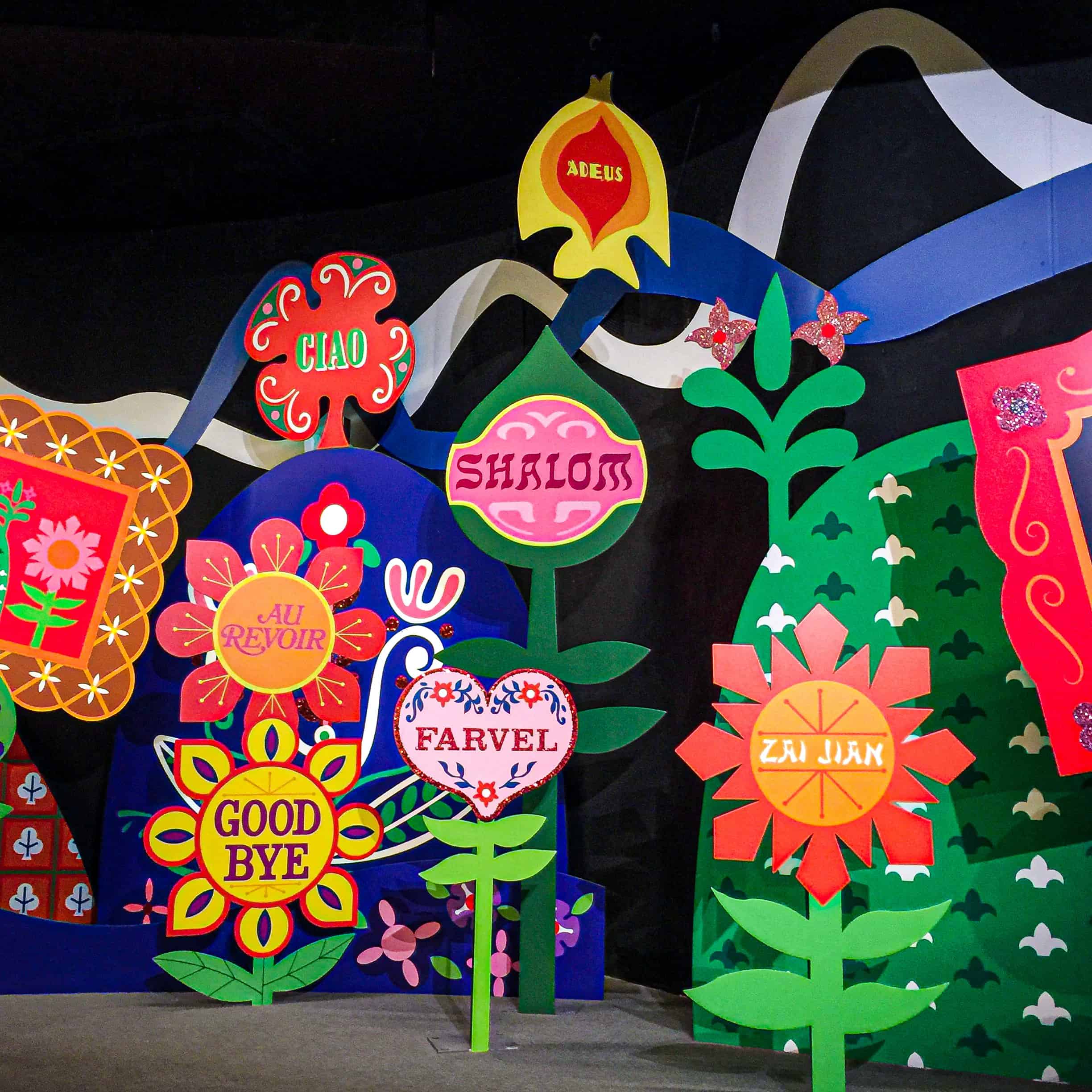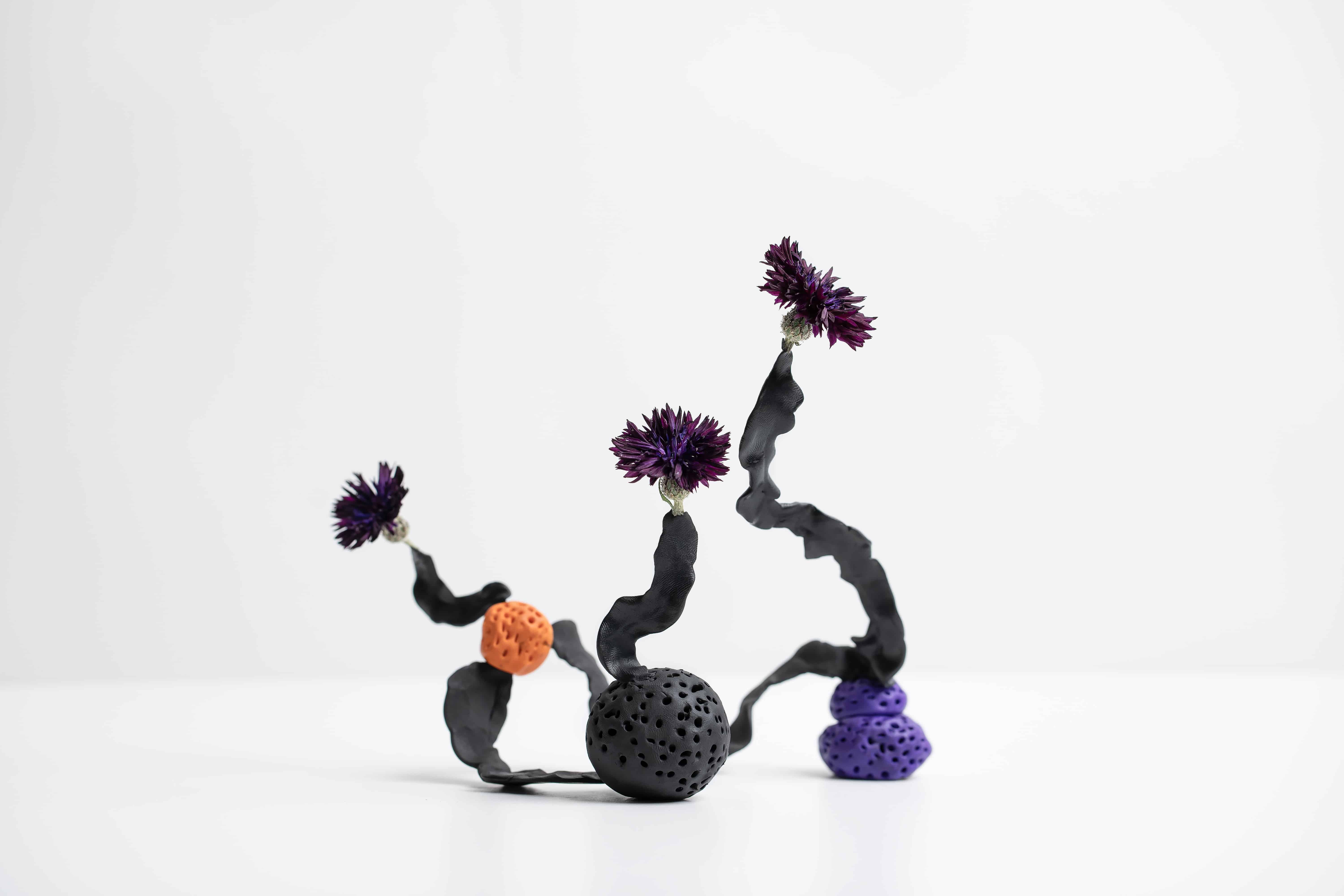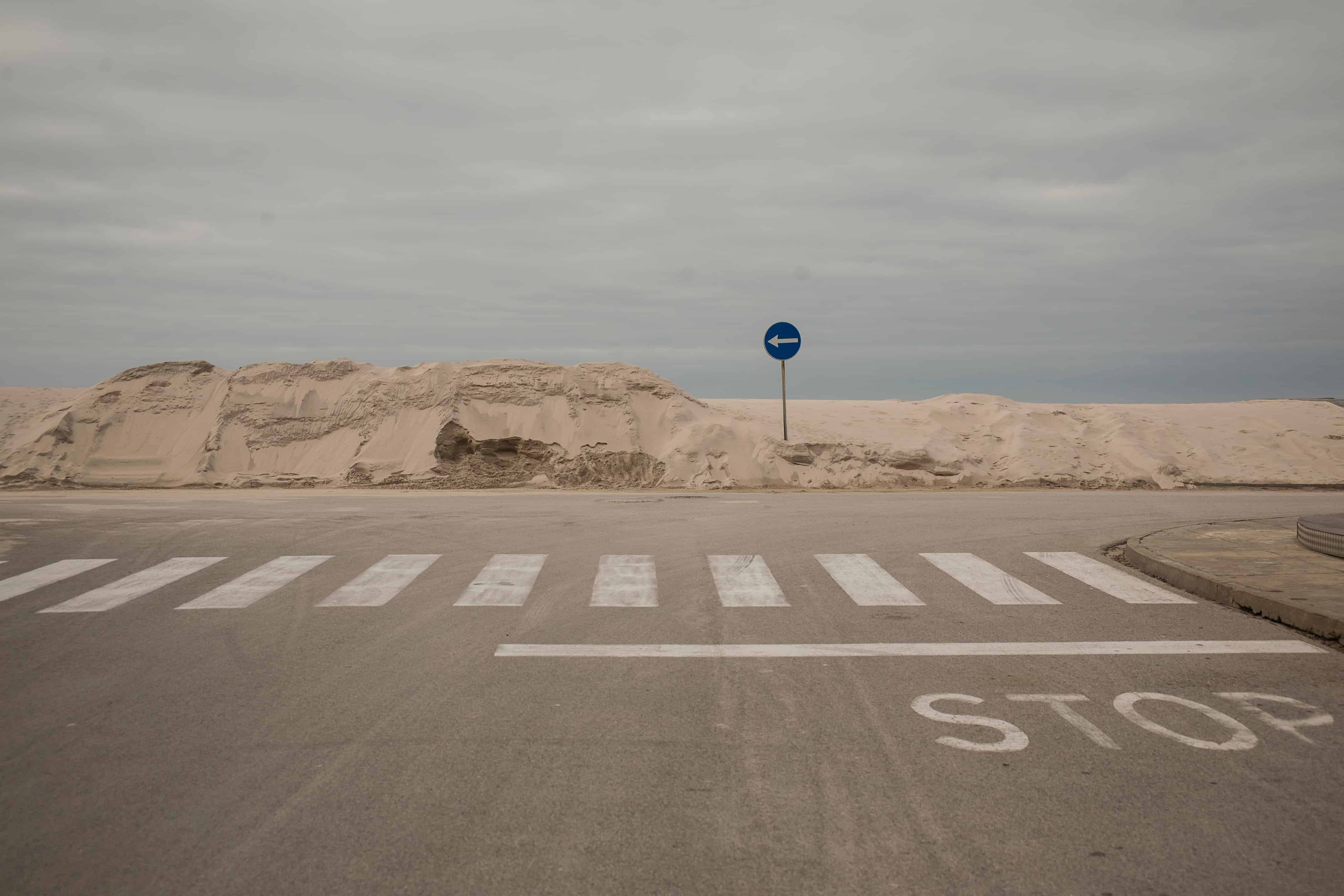-
THE ONES TO WATCH
Introducing The Ones To Watch
Lorem ipsum dolor sit amet, consectetuer adipiscing elit. Aenean commodo ligula eget dolor. Aenean massa. Cum sociis natoque penatibus et magnis dis parturient montes, nascetur ridiculus mus. Donec quam felis, ultricies nec, pellentesque eu, pretium quis, sem.
Lorem ipsum dolor sit amet, consectetuer adipiscing elit. Aenean commodo ligula eget dolor. Aenean massa. Cum sociis natoque penatibus et magnis dis parturient montes, nascetur ridiculus mus. Donec quam felis, ultricies nec, pellentesque eu, pretium quis, sem.
In this interview, our Creative Director Clayton Welham and Head of Marketing Helena Nattrass discuss the idea and concept behind ‘Threshold’, along with the technologies and challenges the team faced in creating the titles during the pandemic.
HN: How did you come up with the idea for the main title sequence?
CW: It was an honour to be invited by Forward Festival to create the main title film for this year’s programme of events. Titled ‘Threshold’, our film is a direct response to the festival’s format and mission to investigate the virtualisation and digitisation of our lives. The threshold between the real and the virtual is the key to our concept; it’s the meeting point where spaces expand the minute we answer a video call or enter a gaming sphere. Our experiences in those moments mix together — we see other spaces, other homes and studios, and increasingly other virtual representations of the people we know.
The line is blurred and we’re in.
The titles were an opportunity for us to explore technology at play. We now conduct our working days, consume content, and being entertained by virtual experiences. There is, however no virtualisation without the means to render and display pixels, and those pixels require a mechanism of delivery. Be it frame rates, screen Hz refresh rates, foveated rendering, AR layering or full immersion into VR spaces, those mechanisms operate in a way that goes undetected – a digital illusion beyond our eye’s capabilities. Moving so fast and at such high frequencies, we only ever get to enjoy the by-product.
We wanted to dial the frequencies down, drop the frame rates and look inside at the moving parts – the mechanisms under the virtual hood. Throughout the sequence, we witness a build-up of pace, starting slow and aiming for the optimum speed whereby typography and the speakers’ names are presented to us with clarity.
-
THE ONES TO WATCH
Lorem ipsum dolor
Lorem ipsum dolor sit amet, consectetuer adipiscing elit. Aenean commodo ligula eget dolor. Aenean massa. Cum sociis natoque penatibus et magnis dis parturient.
Lorem ipsum dolor sit amet, consectetuer adipiscing elit. Aenean commodo ligula eget dolor. Aenean massa. Cum sociis natoque penatibus et magnis dis parturient montes, nascetur ridiculus mus. Donec quam felis, ultricies nec, pellentesque eu, pretium quis, sem. Nulla consequat massa quis enim. Donec pede justo, fringilla vel, aliquet nec, vulputate eget, arcu. In enim justo, rhoncus ut, imperdiet a, venenatis vitae, justo. Nullam dictum felis eu pede mollis pretium. Integer tincidunt. Cras dapibus. Vivamus elementum semper nisi. Aenean vulputate eleifend tellus. Aenean leo ligula, porttitor eu, consequat vitae, eleifend ac, enim. Aliquam lorem ante, dapibus in, viverra quis, feugiat a, tellus. Phasellus viverra nulla ut metus varius laoreet. Quisque rutrum. Aenean imperdiet. Etiam ultricies nisi vel augue. Curabitur ullamcorper ultricies nisi. Nam eget dui. Etiam rhoncus. Maecenas tempus, tellus eget condimentum rhoncus, sem quam semper libero, sit amet adipiscing sem neque.
In this interview, our Creative Director Clayton Welham and Head of Marketing Helena Nattrass discuss the idea and concept behind ‘Threshold’, along with the technologies and challenges the team faced in creating the titles during the pandemic.
HN: How did you come up with the idea for the main title sequence?
CW: It was an honour to be invited by Forward Festival to create the main title film for this year’s programme of events. Titled ‘Threshold’, our film is a direct response to the festival’s format and mission to investigate the virtualisation and digitisation of our lives. The threshold between the real and the virtual is the key to our concept; it’s the meeting point where spaces expand the minute we answer a video call or enter a gaming sphere. Our experiences in those moments mix together — we see other spaces, other homes and studios, and increasingly other virtual representations of the people we know.
The line is blurred and we’re in.
The titles were an opportunity for us to explore technology at play. We now conduct our working days, consume content, and being entertained by virtual experiences. There is, however no virtualisation without the means to render and display pixels, and those pixels require a mechanism of delivery. Be it frame rates, screen Hz refresh rates, foveated rendering, AR layering or full immersion into VR spaces, those mechanisms operate in a way that goes undetected – a digital illusion beyond our eye’s capabilities. Moving so fast and at such high frequencies, we only ever get to enjoy the by-product.
We wanted to dial the frequencies down, drop the frame rates and look inside at the moving parts – the mechanisms under the virtual hood. Throughout the sequence, we witness a build-up of pace, starting slow and aiming for the optimum speed whereby typography and the speakers’ names are presented to us with clarity.
-
THE ONES TO WATCH
Introducing The Ones To Watch
Lorem ipsum dolor sit amet, consectetuer adipiscing elit. Aenean commodo ligula eget dolor. Aenean massa. Cum sociis natoque penatibus et magnis dis parturient.
Eight months ago, in the aftermath of George Floyd’s killing and the global Black Lives Matter protests that ensued, we spent time as a team reflecting on our industry and what we could do differently, both as people and as a business.
We published our response back last summer, which included actions we committed to taking. These covered education, awareness, reviewing of policies and spending time giving back to the industry.
This piece is an update from us, eight months on – a commitment to holding ourselves to account for what we set out to do, and where we’re going next. This is an ongoing and ever-evolving part of our business and we’re constantly looking at where we can improve. We welcome feedback and discussion from anyone interested in what we’re doing here at Found. The best way we can all learn is by engaging in dialogue with diverse voices.
Education
We knew we needed to start to understand the issue before we could find solutions, and move beyond our existing beliefs and initial reactions.
What became apparent early on was that personnel changes were going to be hard in a business our size, which is owner-managed, with a low employee turnover rate and leadership team that had been in place for a few years. Add in the pandemic and uncertainty about the economy (bearing in mind this was early August) and it was hard for us to see how we could affect change in our team at a time when growth was looking unlikely.
However, we quickly realised through speaking and listening to various people in industry and education, discussions with other business leaders and insightful reading and learning from platforms like YCN, that the best thing a business like ours could do was to understand the challenges someone might face trying to enter and advance in our industry.
What started as a response to BLM has led us on a broader journey – one of ongoing education, awareness and shared learnings. A response that started at ethnicity but that has evolved to encompass gender, neurodiversity, accessibility and a growing understanding of the challenges less privileged people might come across.
Recruitment & Collaboration
Thankfully the past year has been fairly kind to us as a business, so it wasn’t long before the need to recruit arose again. This allowed us the opportunity to review how we recruit and ask ourselves questions like, ‘Are we writing job ads in the most inclusive way?’, ‘Are we actively looking to broaden where we advertise roles?’, ‘Are we consciously interviewing as diverse a selection of candidates as possible?’ and, ‘Are we setting aside more time to speak to a broader pool of candidates at the first stage?’
The learnings and changes we’ve made are now part of our hiring policy moving forward, along with a better onboarding experience, a consciously more welcoming way of talking about working at Found and shining a light on our team and what they do, beyond just client work. Alongside the hiring of new permanent team members, we also spent a month in late summer researching, engaging with and expanding our pool of freelance collaborators, taking a more global, non-London-centric stance.
However, despite all of the above, it’s clear that the people applying for roles at Found and interested in working with us still predominantly ‘look’ and ‘sound’ like us. So the question remains: Is it us, the industry, or motion design as a discipline that has a diversity issue, and what else can we do about it?
Mentoring
We believe the biggest impact we can make in the short term is through mentoring, and crucially this being something we should do across all levels and areas of Found. Some of us already spend time working with and mentoring young people in the industry, or start-up business owners. We know how rewarding this is personally and how beneficial mentees find it – and we’re keen to get everyone at Found involved in this experience.
Having explored and experienced various industry schemes in the past few months our ambition for 2021 is to launch our own ‘Found Academy’ (working title). We want to involve everyone in our team – across all levels and roles – and we’ll be committing working time every month for everyone to undertake a mentoring activity.
The Found Academy will be open to and aimed at helping those under-represented in the animation industry, in particular, Black and Ethnic Minority people.
We believe that by doing something owned by us and specific to our industry we can better target and appeal to those looking to understand more about our world. We also feel that by engaging directly with people in this way we’ll gain a much better understanding of their challenges in entering the industry – by listening and learning from them first hand.
Our hope in creating the Found Academy is that we can provide opportunities for those who might not otherwise have them, and develop our understanding and knowledge through more direct interaction. This will in turn enable us to grow as an organisation and become a more diverse and attractive place to work.
In summary
In reflecting on the past eight months and writing this piece it’s clear that we’ve made some positive changes, and they have become part of the ‘Found way’ for good. However, it’s also clear that some of the bigger changes we should make require more focus and deeper engagement. If we’re to change the make-up of our team and make an impact on the wider industry, we need to push harder.
Watch this space.
-
THE ONES TO WATCH
Lorem ipsum dolor
Lorem ipsum dolor sit amet, consectetuer adipiscing elit. Aenean commodo ligula eget dolor. Aenean massa. Cum sociis natoque penatibus et magnis dis parturient.
Forward Festival launched its 2021 festival in Munich earlier this month, starring the likes of Martin Parr, Stefan Sagmeister and Ines Alpha. We directed the Main Titles in a partnership stretching back to 2019.
Especially if you are considering creating your own family office, it is wise to contact us. We have extensive experience in setting up or evaluating your own family office. No need to reinvent the wheel yourself!
Also, it may be desirable not to have your own family office perform all tasks independently. FCM works together with several so-called single family offices to realize an optimal structure for you and your family.



